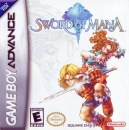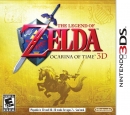S.Peelman said:
What I meant was, that Nintendo went to Philips behind their backs and dropped Sony suddenly when development of the CD addon and the stand-alone system was basically done. The development of the sound-chip for the SNES was before Sony had any interest whatsoever in going into the video-game industry. They almost didn't want Kutaragi to do it. When that project became a success, Nintendo returned to Sony for the CD addon and Sony went for it. It wasn't until after that when Sony became interested in video-games and started to develop their own systems (at first together with Nintendo) and they became competitors (afterwards). Nintendo would've kept their own line of consoles plus the CD addon but allowed Sony to use Nintendo's console technology to create their own stand-alone system that incorporated both. It's not like Nintendo wouldn't have gotten any money off of that. Nintendo would've remained 1st party, Sony would've had a device compatible with Nintendo games and both would be compatible with the CD's. Also, Nintendo would've been the one that had control over the content of both systems. Similar to how the Colecovision got an addon that allowed Atari 2600 games to be played. Or how different companies licenced Philips' tech to create their own CD-i's. How all that would have affected the 5th generation is impossible to know. There likely wouldn't have been an N64 and PS1 as we know it. But anyway, Nintendo wasn't only poking with sticks in Sony's side, that's true |
Actually, both Sony and Nintendo were the ones talking about an all-in-one entertainment system in the home. This was Sony's way of saying that they wanted in on the games market. Nintendo were on board too, until they found out that they'd be relegated to 2nd party status and would lose ALL of their licensing rights to Sony. The reason why Nintendo went to Philips was for that very reason. What, were you expecting them to roll over and take it?
Read up a little on the initial agreement. Nintendo had full licensing of the cartridge side, but the agreement stated that any games made for the SNES CD would be licensed by Sony. Nintendo were afraid that their licensing model would be bypassed for an even cheaper medium, since at the time, they DID believe CDs were the future. It wasn't until later that they got a bad taste towards optical technology, after the joint agreement between Nintendo, Sony and Philips much later.
Sony always had intent to enter the game market in the 16bit era, following in the footsteps of all the other electronic giants. The difference was, they almost got the market leader on their side to make it happen.




















 .
.